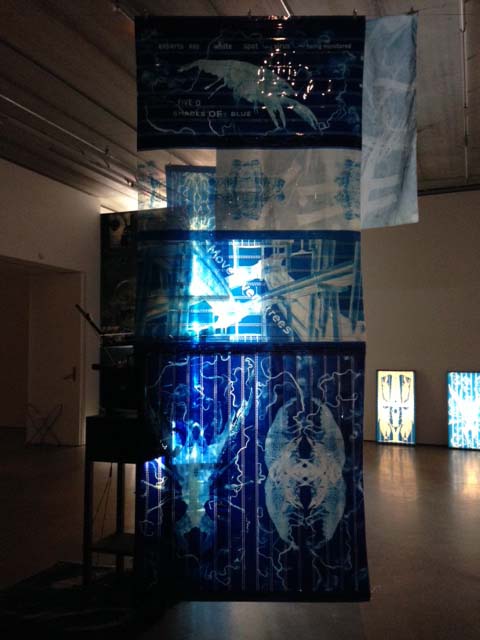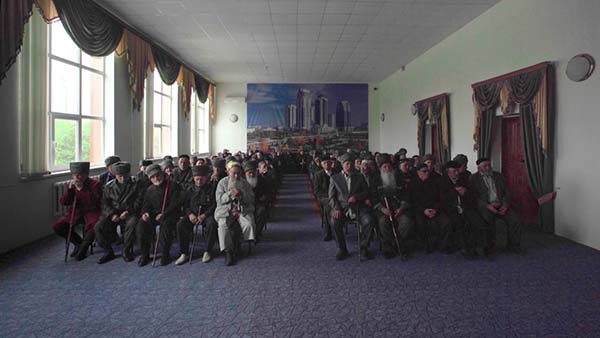Investigating a difficult time in a difficult place (California: post-millennium), Andrea Lambert’s debut novel Jet Set Desolate is a minor flashback into the unstable, patchy American mode de la vie of a fictional character named Lena Cosentino. Writing from the po-mo perspective of a lone woman in her early thirties, the now alcoholic (although nothing in comparison to Lena’s past bouts with more serious narcotics and other not-so-wise socio-sexual diversions … some worthy of attention, some blown out of proportion) grapples with the remainders of her memories and desires, her failure to assimilate to what America expects of her. Written primarily from Lena’s first-person perspective, the reader is allowed to view Lena’s Bay Area on-the-fringe, bohemian-punk existence firsthand but in retrospect. The reader is reminded of the beginnings of various popular realities that are now well-known to many in their late 20’s or early 30’s—many at-a-loss post-grads from somewhat respectable liberal arts colleges and/or art schools that haven’t exactly panned out like they promised.
We are introduced to a long list of uncomfortable phenomena, once potent in the height of their momentary grandeur, now a bit lukewarm: the Craigslist personal ad, the one-night stand, the dead-end temp job, unemployment hard-knocks, the rude social encounter, the vapid personal life, romantic precipitants, using vs. the user, the needy boyfriend turned rapist turned still questionably desirable pursuit for the protagonist, the sketchy drug connection, the blurry night life, the morning after pill, the morning after hangover, the morning after regret, the morning after mental crash, the mental breakdown, the ”cry for help” despite Lena’s tooth-and-nail demeanor. Lena expresses her intrinsic struggle to cope with these raunchy cards:
Settling [the flowers] into a pint glass, I filled it with tap water and set them on my bedside table. There. I was an independent woman. The luminous petals lolled in soft circles bursting stems. I toyed with a stalk. There. I would not be afraid. Although I would stalk the dawns alone, there was a silence there that embraced me, and I would survive into the day.
A fresh-faced work set in the once-edgy heart of San Francisco’s urban decay, expressing the disturbing underbelly and fragile psychosis of those forced to endure what they sometimes don’t deserve but, frankly, sometimes do, Jet Set Desolate is a sometimes honest, sometimes contrived portrayal of a once young woman caught in between the ideas that she has or once had for herself and—her future and the realities of what kind of life has actually happened instead despite Lena’s superb grades in college, her once pretty and delicate demeanor, her obsolete charm and once privileged lifestyle. Andrea Lambert’s tone and subject matter is reminiscent of previous works such as Less Than Zero by Bret Easton Ellis and harbors a similar energy likened to Dennis Cooper’s provocative oeuvre. Lambert doesn’t shy away from exhibitionism or sultry triangulation,
I crept off the bed and withdrew to the nightstand, where I lifted the camera and focused in on Raúl. Their bodies undulated fiercely, drag queens glaring daguerreotypes over tawny backs and plunging lips. Suddenly, Raúl pulled out of Dan’s mouth and began to cum in frantic, starlight tendrils across his hardened face. I dipped with the zoom lens, then tipped it to the nightstand and leapt up to fall between them. Dan flipped me over and wiped his semen-stained chin against my nape as he forced his cock up my ass.
Yet, Jet Set Desolate is interested in the concept of post-expiration or the post-mortem interval: what happens after a part of one’s self dies, and what is to be done about what remains or stands in the place—of what once was truth? What life exists after a significant absence occurs whether this concept of death be associated with a much-coveted period of one’s life, the death of a previous significant relationship, of one’s youthful and overly ambitious attempts to succeed, of love, hate or feeling all together. Will Jet Set Desolate leave the taste of nihilism in one’s mouth? There is a good chance that you will taste such, but perhaps it is better to interpret Lambert’s debut as bitter-sweet with traces of mint and lime. Like one Mohito too many, the novel might make your head throb, but it’s nothing that readers of raw literature (and its many forms) aren’t used to by now. It’s nothing that the light of tomorrow won’t cure—the hope associated with making it through a tragedy (or a related downward spiral), whether real or imagined, mammoth or minuscule. What stands to be more thrilling than sheer survival? Whether ”of the fittest”—or the fittest to be tied.To see the review in context, click here.








